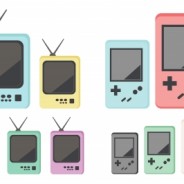HTML5 gaming is doing well!
2013 seems to be good and promising for HTML5 gaming. Despite the bad press it had in the past year, performance issues, and the situations where huge companies gave up on it’s development, we can see that 2013 may be a crucial and positive year for web gaming. We often hear that “HTML5 is not ready. It’s not working. It won’t work. It will be a failure.” According to Henry Hoffman who is Mudvark’s Creative Director, “The idea that HTML5 delivers poor performance is all a lie perpetuated by people...
read moreLet’s produce HTML5 games with a serious approach.
Most of gamers use to playing entertaining, funny, or not very engaging games. The aim of such games is pure relax and escape from everyday duties and efforts. But it doesn’t work in all cases this way. Presently, we are seeing very fast growth of the mobile market with more and more variations of apps and games showing up to compete for interested customers. HTML5 gaming became one solution which can change the approach to game production. With the great advantage of cross platform features, HTML5 developer products can work on...
read moreImmersion in mobile gaming – what affects it?
“Immersion is widely agreed to constitute an integral part of the game play experience.” (source: Portable Presence: Can Mobile Games Be Immersive Games?) Most of us played mobile games at least a couple times in our lives, and we noticed how different this experience is from playing a game on a PC, TV, console, or even on a handheld device. We usually start mobile fun in specific conditions or places, or we are motivated to do that by specific behaviors. Mobile games have many advantages and disadvantages to give us better...
read moreHTML5 mobile games monetization with advertisements – does it really work for us?
At the end of previous year, I wrote an article about various ways to monetize HTML5 mobile games. I was describing most popular models, and after that I chose those that may be most profitable for Bushido Games. Best practices we had in that time were based on interesting fixed monthly subscription model and fixed license fees. I’d like to mention freemium too, because one of our games supports it. Although it seems that this system works better with native app stores than web mobile networks. It is caused by a fact that it’s...
read moreMobile gamers behaviors – where and how often we play mobile games?
Before our new game showed on market, we played it a lot to be sure that it is well tested. Tests took place in many stages of game development, in different places and hours. One day I took my smartphone, I launched the game to do another test, I laid on the bed… and in this moment a thought showed up in my mind. “I’m playing a mobile game in my bed, so my behavior is dictated by a specific habit, or an accommodation to a specific situation. Have there been any surveys or researches connected with behaviors of mobile...
read moreCase study of “Animory” HTML5 mobile game production. How do we really do that?
My last blog entry brought some questions and suggestions from developers and other people from gaming industry. In most cases they concerned: steps of game development, promotion, distribution, finding partners, and rest of activities which lead to a final product release. The previous entry gave a basic overview of what basic factors an indie HTML5 developer should focus on. My intention wasn’t giving out a full, long guide, since it’s rather pointless to do that in one article. This kind of development guide requires division...
read moreWhat factors of mobile HTML5 game should developer focus on during production?
Before producing (your first) HTML5 mobile game you need to decide on what type of game to make. First thing that comes to your mind are performance issues which may limit you in the means of animations and physics. Let’s face it – we can’t reach performance of native mobile games yet. But it’s not a reason to cry, and giving up – especially that trends are changing, and technology is moving forward. We are at the edge where after 2 years of development HTML5 mobile game achieved more than we could expect. At the...
read moreAre there alternative/additional solutions to earn from HTML5 games?
Monetization of mobile HTML5 games – this is by far most important and vast topic discussed by many web gaming developers since the HTML5 mobile games showed on market. Recently I wrote an article which pointed out the most common, known, and accepted monetization solutions. Much in the same way, other developers, and publishers were describing their own point of view. Here I refer to known entries by Richard Davey of Photonstorm or Ben Chong of MarketJS. Despite the potential, and higher effort, there are still not enough...
read moreSigning an agreement to license your HTML5 games – could it become easier?
Selling a game license, finalizing a deal for revenue shares from IAP or subscription revenues is always connected with big portion of time spent on negotiations, and setting up an agreement conditions. Since the beginning of finding new business opportunities there is always the same process which in many cases may be hard, exhausting, annoying, and it can take away the time you could spend on developing parts of the game you started. Unfortunately, if you really care that your game will be safely licensed to a sponsor/publisher, you should...
read moreCloud gaming networks & HTML5 games – they do have a lot in common
Lately, someone who doesn’t have much knowledge of gaming business, asked me: “What is cloud gaming?”. I addressed him directly to the Wikipedia definition which says: “Cloud gaming, also called gaming on demand, is a type of online gaming that allows direct and on-demand streaming of games onto a computer, similar to video on demand, through the use of a thin client, in which the actual game is stored on the operator’s or game company’s server and is streamed directly to computers accessing the...
read more









